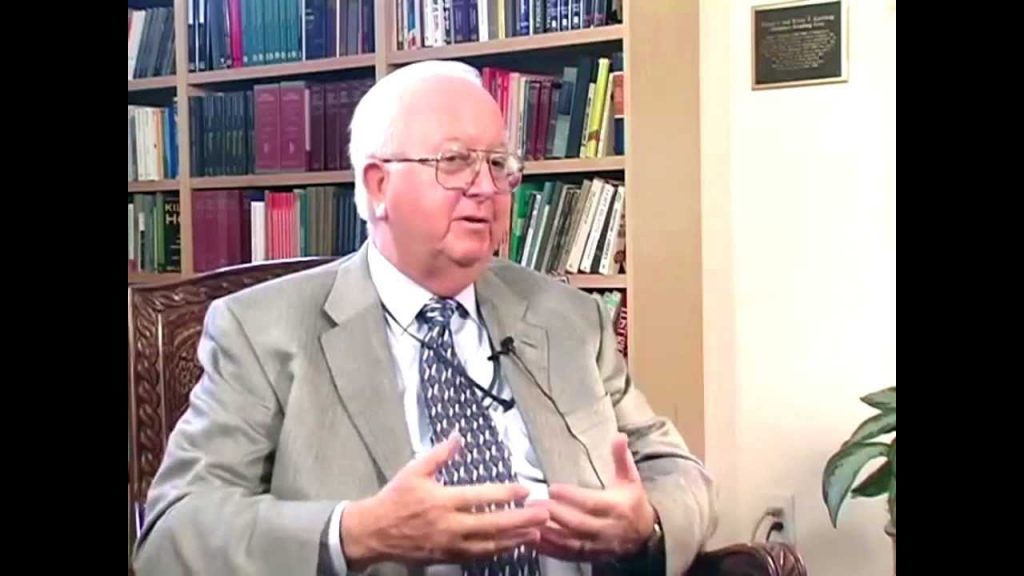Ep. 139 George Reisman on Studying With Mises, Meeting Ayn Rand, and His Contributions to Economic Theory

George Reisman is economics professor emeritus at Pepperdine University. He is one of the few people to get his PhD under Mises. After sharing anecdotes about Mises and Rand, he discusses his contributions to economic theory. In particular, George argues that profits, not wages, are the original form of income.
Mentioned in the Episode and Other Links of Interest:
- The YouTube version of this interview.
- George Reisman’s website and Capitalism.net, and his Twitter account.
- Reisman’s book Capitalism. #CommissionsEarned (As an Amazon Associate I earn from qualifying purchases.)
- Reisman’s Notes on his translation of Bohm-Bawerk on value theory.
- Reisman on James Mill and Say’s Law.
- Israel Kirzner’s review of Capitalism.
- Help support the Bob Murphy Show.
The audio production for this episode was provided by Podsworth Media.

For a few years now I have had the idea that wages are unnecessary in economical analysis. Like’ it’s a forced and unnecessary distinction. My thinking goes like this: a worker is, in essence, the smallest kind of capitalist/businessman/entrepreneur, perhaps. He only has one employee: himself. He owns some capital, like his human capital and maybe some tools, maybe a car, maybe a house, and some money in his bank account. He is a business that sells his labor and enters business arrangements with one or more employees. Some of these “micro-businesses” enter more long-term business arrangements (commonly called employment contracts, and by the way bigger businesses sometimes enter similar business arrangements with other firms, so I don’t think that kind of arrangement is so unique to employees, I’m thinking that’s a false fiction). So what is usually called “wages” is just the revenue of these very small businesses. The accounting profit can also be calculated basically as normal too. He exercises the entrepreneurial function by looking for “employment opportunities”, and so on. He has to manage resources. He has clients, which are his employers. I could continue, but I think that’s enough to get the idea across that we could maybe dispense with the concept of wages as something distinct from business profit. Kind of what Bob does when critiquing the concept of time-preference by comparing it to “distance-preference”. Maybe I’m missing something though, but if I’m right, the concept of wages is a superfluous one in economic analysis and therefore it can be simplified without losing the ability to explain anything.
Wouldn’t leaving out wages make it impossible to calculate business profit? At the firm level, wages and capital expenditures are the two forms of productive expenditure, both of which are needed to understand profit. (Business profit = revenue minus all productive expenditures, “productive” meaning expenditures made for the purpose of earning future revenue). Wages are the original form of “profit” because productive expenditures for the individual worker are essentially zero (wage earner offers only his labor and lives only off his revenue). The concept of profit is not necessary to analyze the economic position of a wage earner, but profit is critical to analyze the economic position of a firm or of the entire economy. So: I would see wages as essential to understanding profits, which are essential to understanding businesses both individually and in the aggregate, and thus essential to economic analysis.
I have also had the same thought. Every ‘worker’ is an entrepreneur who decides where to invest his time (what skills to learn etc) and money (where to live, what learning resources to pay for etc) to create enough revenue to cover the costs and leave a surplus to invest.
As you say, from the point of view of the employer, whether $1,000 goes on wages or on a machine, all that matters is that the product gets made.
Great episode, Bob!
I must admit, I, like Kirzner, wanted to vandalize my copy of George’s treatise, however, it being digital, I was unable.
David Friedman and George Reisman had an interesting disagreement/exchange on George’s original theory on profit some years back but I can’t recall what libertarian blog it was on that may be gone by now. Does this ring a bell for everyone?
Bob, let me echo George Reisman’s high compliment that yours was the best interview he has had. Thank-you for doing this and making it freely available. As a result of your interview I have begun to read George’s Capitalism: A Treatise on Economics and I can say that I have already benefited from having read its excellent preface.
Thanks for the nice compliment! I’m glad you liked the interview, and bravo for starting a big economics book. 🙂